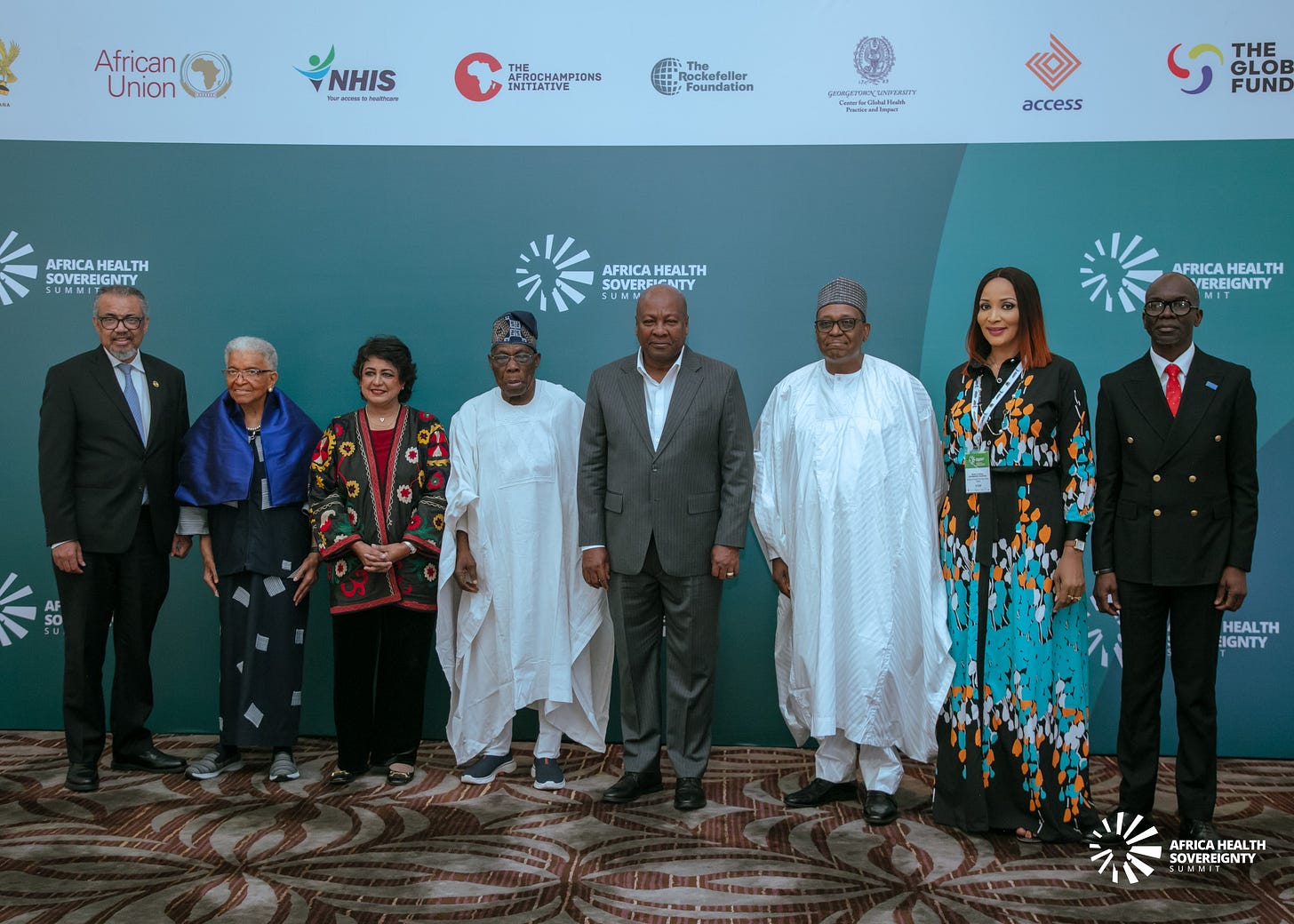The Accra Compact: A Call to Reset the Global Health Governance Architecture
Emeka Oguanuo
At the Africa Health Sovereignty Summit, convened by President John Dramani Mahama, global leaders backed the Accra Compact, a six-month roadmap to shift from aid dependency to self-reliance through domestic investment, stronger governance and regional manufacturing.
On 5 August 2025, at the Africa Health Sovereignty Summit in Accra, African heads of state and global leaders endorsed the Accra Compact, declaring that a legacy health governance architecture, built for a different era no longer reflects the continent’s aspirations priorities, amid geopolitical tensions, climate-health shocks, economic volatility and shrinking development aid. Amid the applauses, sovereignty must be seen not as a handout, but built daily through political choices, or risk sending the signal that African leaders can agree on vision but not on delivery.
In his welcome, President John Dramani Mahama moved swiftly from the ceremonial ‘Akwaba’ to a call for accountability. He acknowledged the failures of the past that have eroded African dignity, and credited co-convenor President Paul Kagame of Rwanda and former President Olusegun Obasanjo of Nigeria for laying the groundwork for the future, against the backdrop of abrupt donor pullbacks. He made a bold pledge that the Accra Compact would not become yet another ‘glamorised’ but redundant document. President Mahama committed to establish a Presidential High-Level Panel and a time-bound roadmap for a re-imagined health governance architecture, one that aligns national plans with multilateral commitments and explicitly builds on the Abuja Declaration and the Lusaka Agenda.
By endorsing the Accra Compact, and launching the SUSTAIN initiative, a practical, country-led framework to map all health-financing flows, close bottlenecks, mobilise domestic resources, and align private and philanthropic capital, Mahama placed Africa’s vision for health sovereignty firmly on record and on a clock. It signalled a change from being passive participants, to acting as a global partner on “equal terms, with milestones tracked from Accra to the Africa Union and the United Nations.
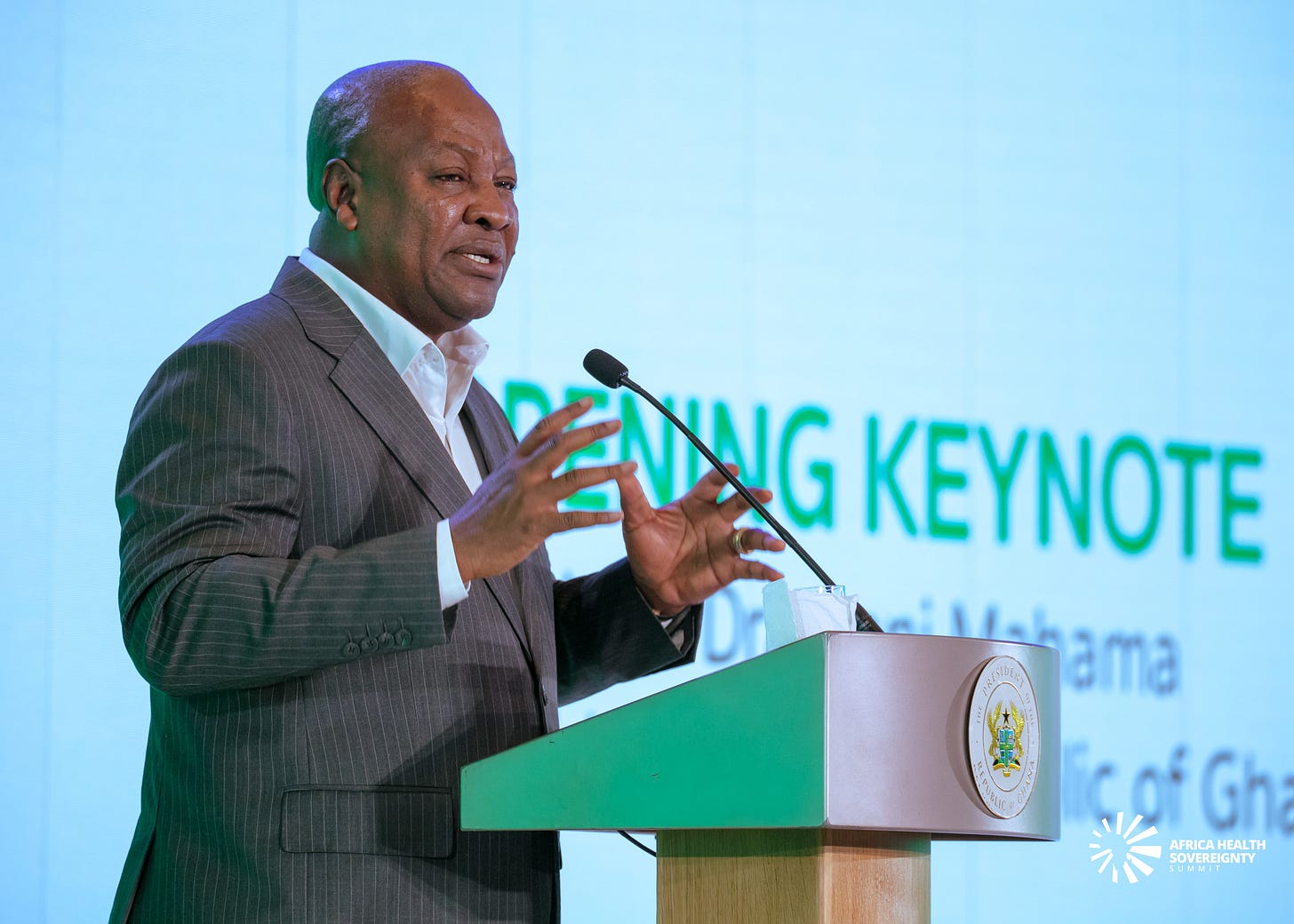
The Three Key Messages from the Summit;
(1) From Aid Dependence to Health Sovereignty
Sovereignty starts at home, with national budgets as the most efficient and equitable source of health financing and reinforced by partners who align behind country plans rather than run around them.
The Director-General of the World Health Organization (WHO), Dr Tedros Adhanom Ghebreyesus commended the continent’s political will as critical for domestic investment and deeper governance reform, citing the landmark resolution to strengthen global health financing initiated by Nigeria at the 78 World Health Assembly, and co-sponsored by over 25 countries including Ghana, South Africa, Senegal and Zambia. He urged using the current crisis to break from aid dependency and embrace a new era of sovereignty, self-reliance, and solidarity. “In 2023, Africa received US$74bn in aid but lost US$90bn to illicit flows and US$55bn to tax exemptions”, he said: meaning the continent lost much more resources to illicit flows than it gained from aid, and that a gradual reduction on the reliance on aid, will actually force countries to act more to keep the resources they have and prioritise the health of their populations.
As President Mahama noted, reimagined sovereignty is already taking shape on the continent, with Ghana’s trajectory as proof, highlighting recent parliamentary reforms to uncap the National Health Insurance Fund (NHIF), and the expansion of free primary healthcare are ways it is filling the funding gap left by donor withdrawal.
“The world has changed, but global health governance has not kept pace with the changing world. At this moment, we’re called to redesign the architecture that has, for far too long, excluded Africa’s voices, excluded Africa’s needs and innovations.”
~ H.E, President John Dramani Mahama, President of the Republic of Ghana
Nigeria’s Sector-wide Approach (SWAp), aligning partner support behind a single plan and budget, offers another example. Nigeria’s Health Minister, Prof. Muhammad Ali Pate during his remarks at the summit called this an “authentically African and globally relevant” agenda, showing how health translates to growth infrastructure when driven by domestic choices that endure even amid geopolitical instability.
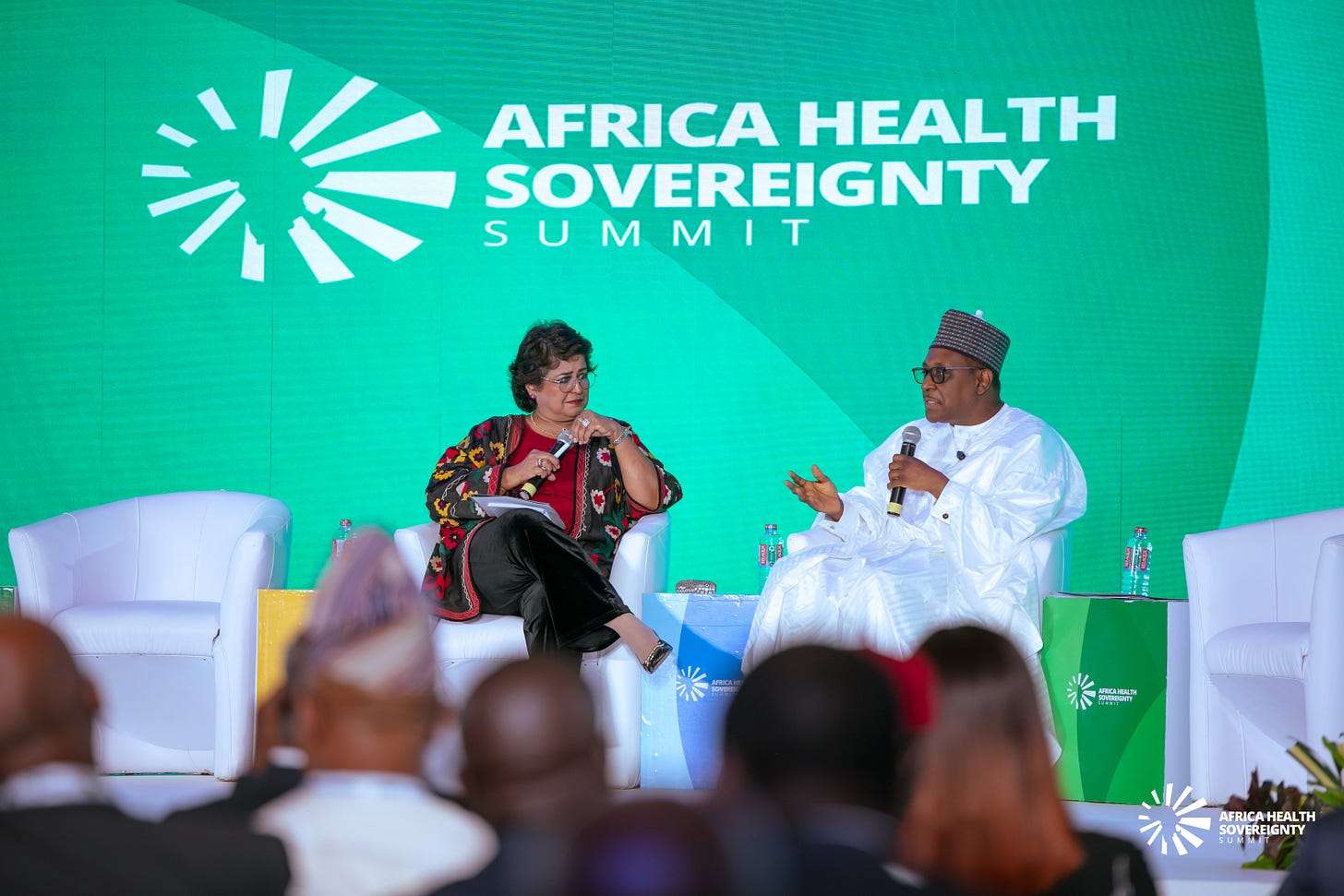
(2) Health is wealth: Domestic investment as the backbone of sovereignty
Africa must reduce exposure to external shocks by shaping its own markets. By relying on imports for 99% of vaccines and most medicines, the continent’s vulnerability was exposed by COVID-19. The African Union’s Partnerships for African Vaccine Manufacturing (PAVM) set a 2040 target to produce 60% of vaccine doses locally, aligning partners from Gavi to UNICEF and Africa CDC. The Accra Compact ties this ambition to financing reforms: regulatory harmonisation, pooled procurement, and credible offtake under the African Continental Free Trade Agreement (AfCFTA). It will do this by prioritising regional manufacturing of vaccines, medicines and diagnostics, moving from resilience to reliance.
Leaders in Accra were plainspoken about the political economy. Ghana’s Health Minister, Hon. Akandoh, and AU Health Commissioner, Amb. Amma Twum-Amoah, stressed that Africa’s leverage in influencing global change lies not in isolation or fragmented demand, but in collective bargaining through pooled procurement and harmonised regulation. Yet the political-economic realities are hard to ignore. While Ghana’s inflation has eased from crisis-era highs, it remains elevated enough to strain public finances. Across West Africa, regional instability, including the fallout from ECOWAS withdrawals, complicates the picture further. And without stronger commitments to African-led research and development, the push for local vaccine manufacturing risks trading one form of dependence for another. Global support, meanwhile, will not be judged by applause in Accra but by whether partners adapt their financing, reporting, and procurement models to strengthen, rather than bypass national systems.
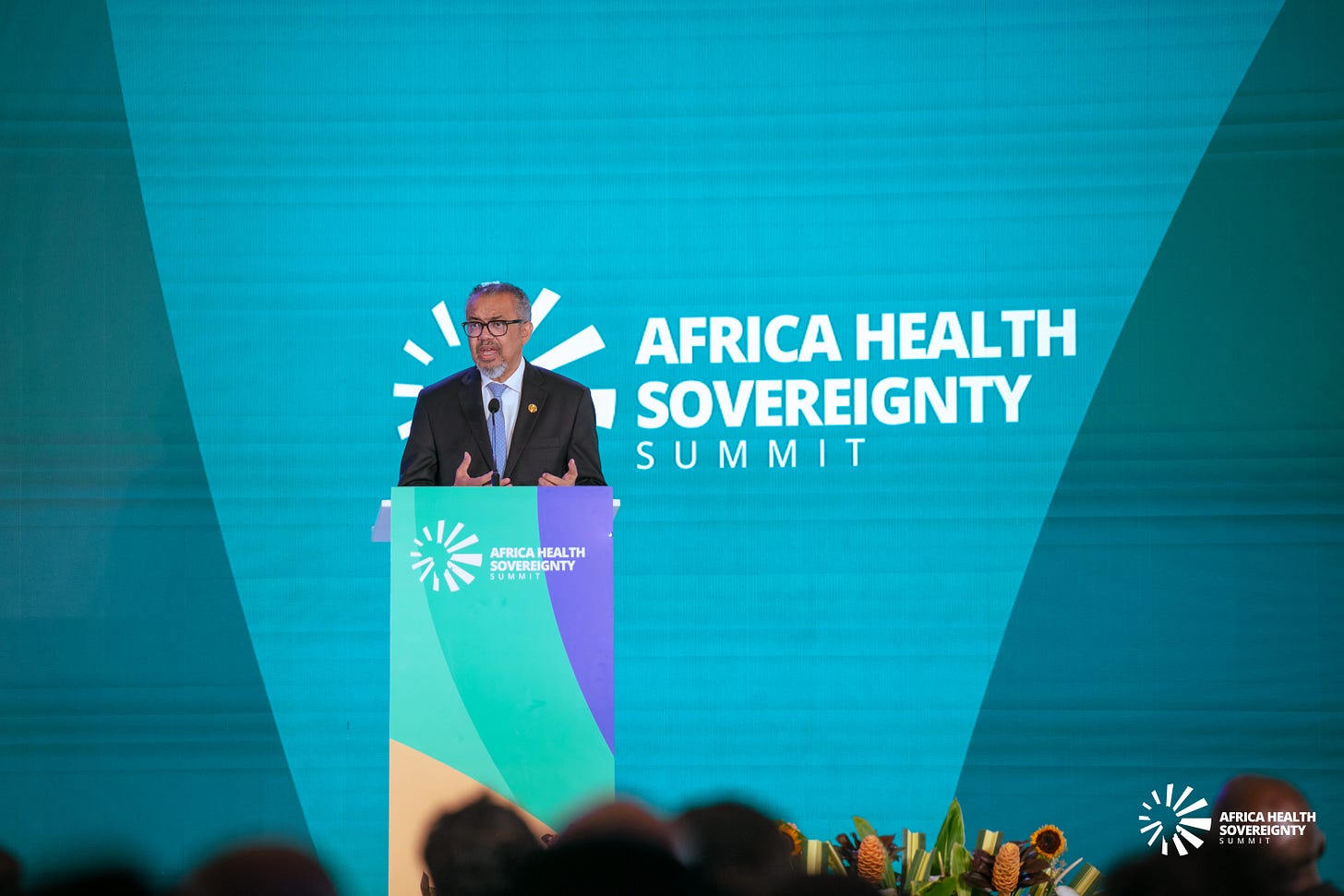
(3) From Accra to action: Institutionalise delivery across levels
Execution is about turning commitments into results. The Accra Compact shifted ambitions from being a static document to a living, country-led initiative that will turn political will into delivery.
Four steps define the cadence of the events.
(i) endorse SUSTAIN as Africa’s tool to safeguard gains and accelerate sovereign systems by mobilising domestic resources and aligning partners behind national plans.
(ii) set a six-month roadmap, with outcomes tied to action, overseen by a Presidential Task Force and an Eminent Leaders Group to unlock bottlenecks.
(iii) socialise and mobilise: take the Accra Initiative from capitals to AU Summits and the UN General Assembly so continental consensus becomes global rule-shaping on financing, reporting and results.
(iv) showcase early adopters: Ghana and partners will demonstrate in real time how sovereign financing and governance deliver measurable impacts, creating proof points that invite replication.
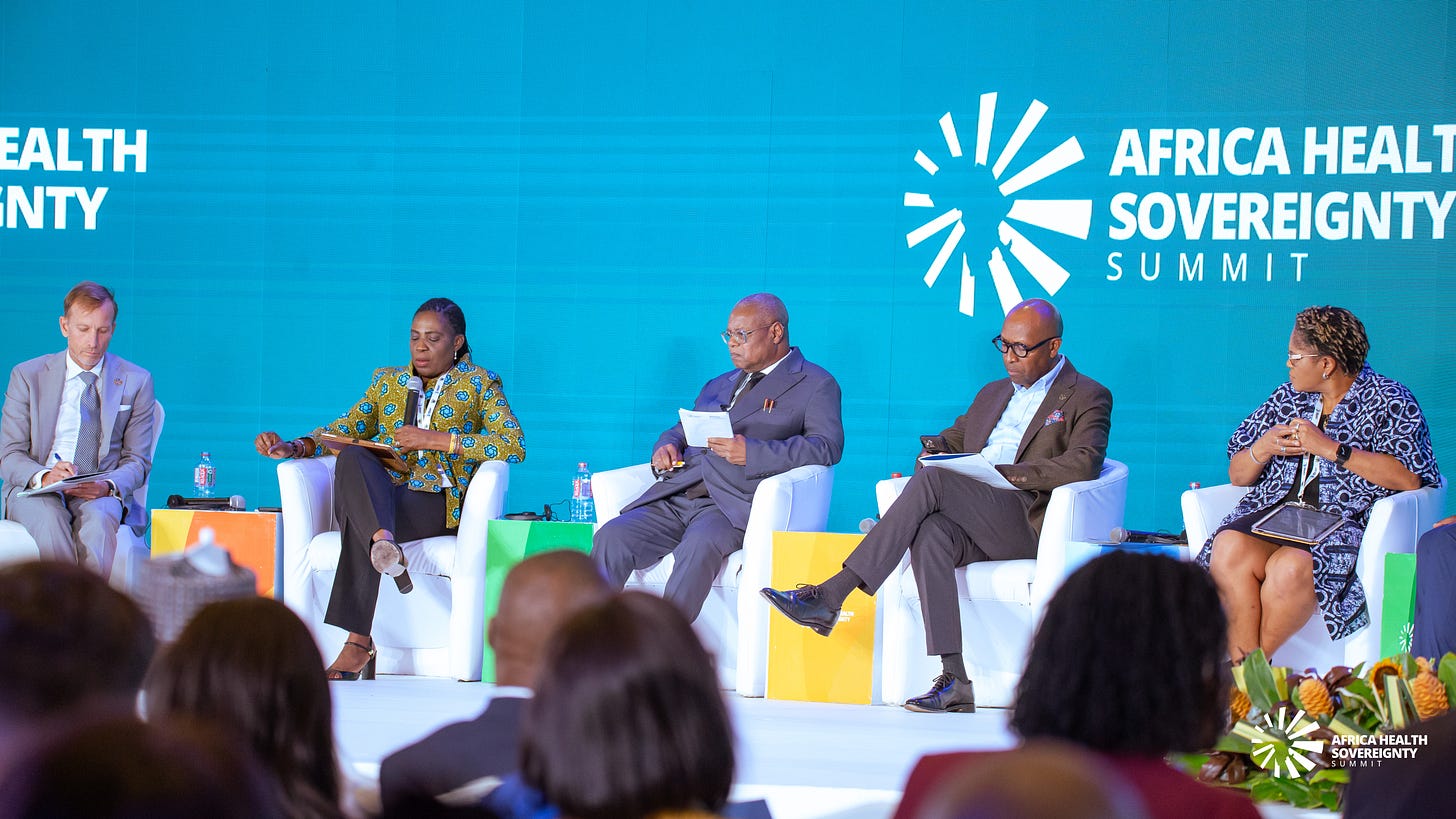
By 2050, one in four people on earth will be African, with the continent supplying the largest share of the world’s working-age population, a strategic leverage to reset global rules on fair terms. What can set the Accra Compact apart from past unfulfilled moments is the cadence of events over the next six months. Governments should present a presidentially endorsed roadmap endorsed by Presidents and Heads of State with quarterly targets for PHC coverage, budget optimisation to the health facility level, and manufacturing milestones aligned to AfCFTA corridors, then report progress in a continental scorecard.
The Presidential Panel should drive adoption of SUSTAIN as the financing and governance vehicle, naming early adopters as agreed in the communique, and tracking their progress through AU meetings and the UN General Assembly. If leaders hold this line, the Accra Compact could mark Africa’s shift from promises to performance, and from being spoken to, to being heard. This presents a generational opportunity for the continent.


